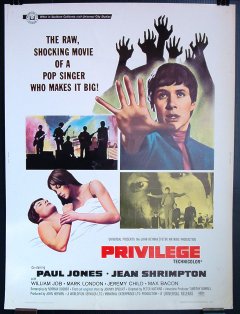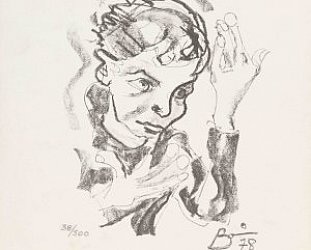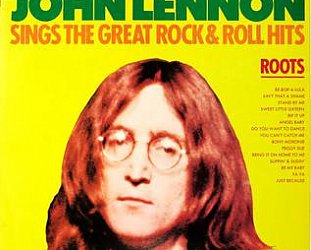Graham Reid | | 1 min read

Set in a dystopian future where the British government and state authorities (as well as organised religion) exercise complete and often subtle social control over citizens, this remarkable film by Peter Watkins came just as Beatlemania was ending but seems to use an extension of it as its starting point.
Nominally it could be called a "pop film", but it is much more than that and -- although today it appears mannered and full of the same portentous silences as its contemporaries such as The Ipcress File and Blow Up -- its socio-political agenda is greater than the pop music vehicle it uses.
Presented as a documentary with a voice-over and moving camera, Privilege looks at the phenomenon of Steven Shorter, a former borstal boy now singer (played by Paul Jones of Manfred Mann) whose theatrical stage act involves him being beaten by prison guards, tossed in a cell and pleading with his audience to "free me". The young women in the audience weep and rage at his mistreatment. This was a decade before acts like Alice Cooper took dramatic re-enactments onto rock stages.
But Shorter also isn't acting: he is a wounded figure, denied a personality, manipulated by his minders (the somewhat cliched Jewish publisher, the anarchic manager) and increasingly used for the purposes of others.
And then, in a move for more totalitarian social control, Shorter is given another role to play -- a part too far.
Jean Shrimpton plays the luminous love interest, but it is Jones (also the central character in the Kafka-esque The Committee around the same time) who commands the screen with his sullen presnce.
Beyond that however director Watkins shows how governments and religion manipulate to their own ends, how there is a complicit media -- and even how the public wish to remain duped rather than take a stand against oppresssion and social control.
A powerful film, it is presented on DVD in crisp high definition after a 30 year absence from screens, and includes some important extra features which contextualise it in Watkins' career and illuminate his source material, and the booklet has excellent essays on Watkins, Privilege and the teen idol phenomenon.







post a comment